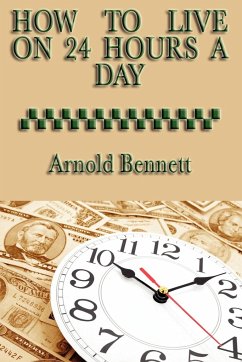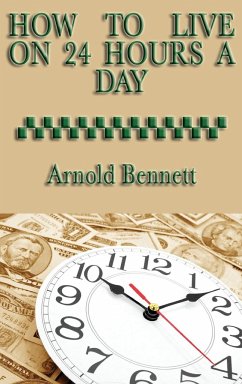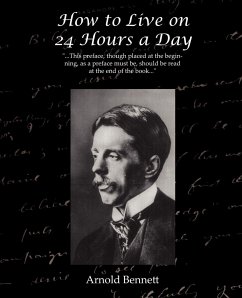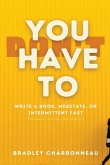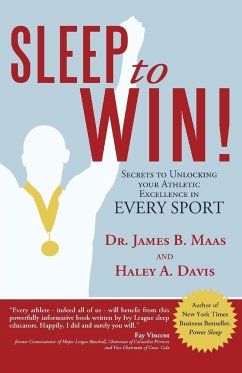Bennett address the problem of never having enough time. In this book, he urges hourly workers to use ¿spare¿ time to improve their lives, making the best of their time outside of work. He understands that most people are spending as much time as possible working to make more money, thus disliking their lives. ¿Time is money¿ seriously understates this matter, more time can generate more money, but money cannot buy you more time!
Hinweis: Dieser Artikel kann nur an eine deutsche Lieferadresse ausgeliefert werden.
Hinweis: Dieser Artikel kann nur an eine deutsche Lieferadresse ausgeliefert werden.

